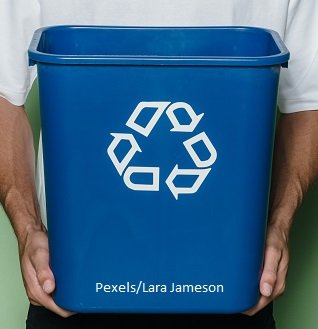Sustainability Tips for Your Day-to-Day Life
/Guest post by Matt Casadona
In the past, sustainability was associated with hippies and tree-hugging, but as more generations have begun to pay attention to the ways we are destroying our planet, it’s become a hot topic and one many people, young or old, are exploring. As you become aware of how your everyday life-- from your morning commute to your meals-- affects your carbon footprint and the planet, you’ll need ways to help you live more sustainably. Here are some of the simplest ways to become more sustainable without drastically altering your lifestyle.
Use Reusable Mugs
If you can’t help but get your coffee fix on your way to work, then bring your reusable mug instead of using a paper cup every single day. Bringing your mug saves a paper cup and plastic top, and with an insulated mug that uses a sealed cap, you can keep your coffee hotter for longer.
Bring Your Own Bags
When you go grocery shopping, you’re using many plastic bags to schlep your groceries home. Instead of using plastic bags, bring your reusable cloth bags with you to the store so you can reduce your use of plastic bags that will end up in landfills. Some areas like Chicago also have a bag tax, which costs you money every time you use a plastic bag from your local grocery store.
If you want to save money, use less plastic, which will prevent your bags from breaking and your canned goods from falling all over the ground. By opting to bring your reusable bags every time you go grocery shopping you are saving money and helping the environment.
Grocery Shop More Often
Since we’re on the topic of grocery shopping, did you know your shopping choices affect the environment? By grocery shopping more often, we don’t mean you should buy food you don’t need. Instead, purchase fewer things at the store so you don’t let food go bad in your fridge. Buying too much food at one time and not eating it can cause a massive amount of food waste. Instead, purchase food for a few days at a time and go back to the store when you need to.
Store Food in Reusable Containers
Instead of packing your lunch with plastic wrap and Ziploc baggies, try using reusable containers you can wash out and reuse. This will help you keep your plastic use down while having a great way to store and carry food to and from work.
Recycle
Instead of throwing everything away, make a conscious effort to recycle more. If you don’t already have one, put a small recycling bin inside your home with a list of items that can and should be recycled. If you have young children in the home you’re trying to teach sustainability to, then get them involved by providing them with a reward each time your in-home recycling bin gets filled with the proper contents.
Get a Reusable Water Bottle
When you’re at the store, it can be tempting to reach for a pack of 24 plastic water bottles to keep in your car just in case you get thirsty. However, most people use these water bottles one time and toss them out rather than reusing them until they can’t anymore. Instead, purchase a reusable water bottle you can take with you anywhere you go.
Turn Your Lights Off
One of the best sustainability tips is turning your lights off because it helps reduce your carbon footprint and your utility bills. When you leave a room, make sure to turn the lights off and keep them off when you’re not in the room.
You can also choose to purchase LED light bulbs because they’re more energy-efficient and last longer.
Only Run Laundry and Dishwasher When Full
If you do small loads of dishes or laundry instead of one large one, you’re wasting water. While you can select your wash size in a washing machine to change the amount of water used, there’s no reason to do so since you’ll be wasting electricity when you use the dryer on a small load. By making sure your appliances are full before running them, you won’t have to do your chores as often and can save water and electricity in the process.
Carpool to Work
Driving to and from work will increase your carbon footprint drastically. Instead, opt to carpool with a coworker so one car is on the road instead of two. You can also choose to take public transportation or ride your bike. If you are carpooling or not using your vehicle as much as you thought you would, you can consider saving money with cheap car insurance.
Work From Home
If you have the option, choose to work from home. Working remotely reduces your carbon footprint because it means you eliminate your commute and use less energy at the office. If you can, talk to your boss about how allowing more employees to work from home can help them cut costs by reducing how much energy is used in the office. Your home office likely uses significantly less energy than your office at work.
With the right home office desks, any space can become the perfect environmentally-friendly office.
Purchase Environmentally-Friendly Products
Several brands out there have opted to become more environmentally friendly, offering products with natural ingredients and eco-friendly packaging. For example, sustainable soap companies now sell their soaps without packaging or with biodegradable packaging. From cleaning products to personal care products, shampoos, and more, you can find a brand that not only benefits your everyday life but the environment as well.
Unplug Devices
Did you know? Anything plugged in, even when it’s not on, uses energy. While you may not see a drastic dip in your energy bill when you unplug electronics that aren’t being used, you will reduce your carbon footprint. For example, instead of keeping your phone charger plugged in all day, unplug it when you’re not using it.
Living Sustainability
The key to a more sustainable lifestyle is starting small. This list can help you start living more sustainably in your everyday life, leading to more conscious decisions about everything you do that can affect the environment.
Matt Casadona has a Bachelor of Science in Business Administration, with a concentration in Marketing and a minor in Psychology. Matt is passionate about marketing and business strategy and enjoys San Diego life, traveling, and music.






































